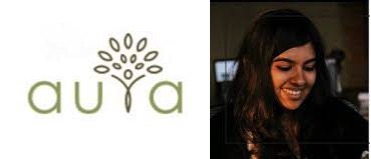Architect Radhika Nichani observed firsthand the atrocities animals face on the streets of India while helping at Charlies Animal Rescue Centre (CARE) in Bengaluru. One horrific case of animal cruelty led her to research about animal cruelty cases, and she came across some literature about the myriad ways the industrial complex has exploited animals to develop businesses and test human products during one such deep dive.
Dairy was one of these industries, she realised. Some call it the world’s most exploitative commerce, in which animals are treated as money-making machines rather than real beings.
In the past, India, on the other hand, took a radically different, more sustainable approach to dairy farming.
“If you study the history of the White Revolution, you’ll discover that India was populated solely by desi cows. While these cows produced the highest quality milk, they only yielded six or seven litres at a time, according to Radhika.
When the British came, however, they brought with them an insatiable appetite for dairy products like butter and cheese. However, India-bred cows were unable to match the rising demand, as Radhika observes. So they altered the genetic makeup of cows by modifying just one gene, resulting in a 20-litre increase in milk output every round of milking.
This resulted in widespread artificial breeding, unsustainable, and exploitative methods in India, which have resulted in not just mistreatment of dairy animals, but also a reduction in the quality of milk provided by cows.
Independent research surveys, as well as international organisations such as PeTA, have uncovered the horrific ways in which dairy animals are abused, such as artificial insemination using filthy, unsanitary equipment and done forcibly, calves being snatched away from their mothers shortly after birth, culling animals if their milk output drops by a single litre, and so on.
Radhika was outraged to learn that one of India’s largest businesses, once responsible for the country’s economic rebirth, was now exploiting animals, and she determined to take action.
Founded ‘Farm Aura’
Radhika started Farm Aura in 2020 with her father, Tarun Nichani, and mother, Shivani Nichani, as a sustainable A2 milk enterprise that rescues desi cows that have been abandoned in favour of jersey/genetically modified cows.
The unique selling point of Farm Aura is that it does not follow demand and only sells what its animals produce.
In fact, if the herd has a new mother cow, she is milked just after the calf has gotten its fill for the day, with the surplus milk going to Farm Aura’s clients.
“We are an ethical, genuine, and natural farm – we make sure our calves are well cared for, regardless of whether they are male or female,” Radhika adds, adding that the animals are just as important to the company as consumers and sales.
Farm Aura, based in Bengaluru, ships some items across India, but the majority of its fresh products, such as milk, cheese, and cottage cheese, are now supplied to clients in Bengaluru.
Source : Krishi Jagaran 09th Dec 2021

